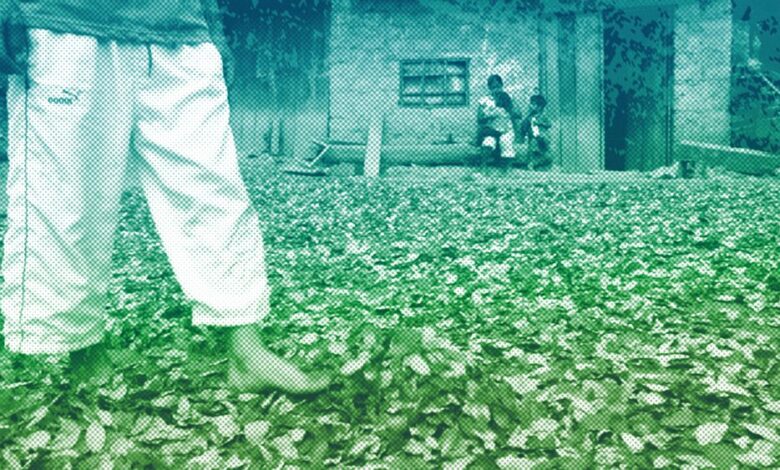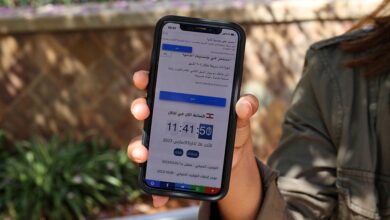Amid worsening food shortages, we need to turn over a new leaf on the coca plant


The ongoing global food shortage continues to imperil vulnerable populations around the world.
Russia’s invasion of Ukraine and its refusal to permit the shipment of grain are contributing to widespread starvation, poverty, and death.
Russian President Vladimir Putin is holding the world’s supply of food hostage in order to further his imperialist quest for land.
As we pass the one-year anniversary of fighting, we must find long-term solutions that will protect millions from malnourishment and food insecurity.
There are two clear ways to do this: find more food in other places so that countries most at risk can stop starvation, and help countries with difficult food production conditions grow food for themselves.
That’s where the coca leaf could be a game changer.
Coca leaf, the perfect ingredient for fertiliser
The plant has been a staple in Andean communities for centuries, serving as a source of nutrition, as an aide for altitude adjustment, and as an energy boost.
However, despite its many benefits, coca is still widely associated with its illegal derivative, cocaine.
This association has led to a prohibition on the international trade of coca, holding back the coca leaf’s potential to help countries in need.
Yet, the coca leaf could be at the centre of a global crop resurgence if we just take the steps needed to free it.

At the Commission on Narcotic Drugs in Vienna last week, Bolivian Vice President David Choquehuanca formally requested that the World Health Organisation revisit restrictions on the coca leaf.
Coca-based organic fertilisers, developed in Colombia, are an innovative, cost-effective, and environmentally friendly alternative to synthetic versions.
If the international community embraces a change to the harsh regulation of the coca leaf, Colombia could help address food insecurity, stepping in to help supply countries in need of more efficient food production.
A part of the response to the Russia-induced food crisis
Before the war, Russia was the world’s biggest exporter of fertiliser — then halted its export, leading to record high prices.
In the past few months, the United Nations has worked with the US and the EU to ensure the sanctions regime in place includes carve-outs for fertiliser.
Brazil and Argentina, which should be able to step in to fill Ukraine’s void as a grain producer, should have the opportunity to explore more stable, long-term options for fertiliser — ones that are less dependent on a hostile regime.

Allowing international trade of coca products, including its use as an organic fertiliser, could play a significant role in addressing the food insecurity crisis and providing rural communities in Colombia with a much-needed source of income.
This could be particularly important in arid areas where soil quality is poor, and water resources are limited.
Pilot projects in Colombia have offered concrete evidence of how these fertilisers are accelerating food production.
It’s time to repair a historical injustice
At the moment, drug treaties, with some exceptions, are preventing international trade of coca or its products.
The Single Convention of 1961, which has been ratified by most countries in the world, classifies coca leaf as a narcotic drug — in the same class as heroin — and restricts its production, trade, and use for medical and scientific purposes only.
Colombia, along with Bolivia, has asked the UN to remove the coca leaf from its narcotics list — a step in the right direction.

At the Commission on Narcotic Drugs, Laura Gil, Colombia’s Vice Minister for Multilateral Affairs, made a plea to “repair the historical wrong.”
Colombia’s President Gustavo Petro — who took office six months ago — has derided the US-led “War on Drugs” as a failure and called for a new international approach to drug policy, pledging to provide leadership in reforming the international drugs regime.
This should not end up being a squandered chance
If we do not respond to the requests of Colombia and Bolivia, we’re wasting an opportunity to help food-insecure communities.
Freeing the coca leaf from harsh restrictions is a smart solution that would help improve the livelihoods of communities in need of sustainable food production.

It would also lift up coca growers who can offer their agricultural products in service of others.
This solution could easily happen in the world of rational, evidence-based drug policy.
Kasia Malinowska-Sempruch is the director of Drugs Policy, Global Programs, at the Open Society Foundations. Diego Garcia Devis is a Team Manager for Open Society-Latin America and the Caribbean.
At Euronews, we believe all views matter. Contact us at view@euronews.com to send pitches or submissions and be part of the conversation.



